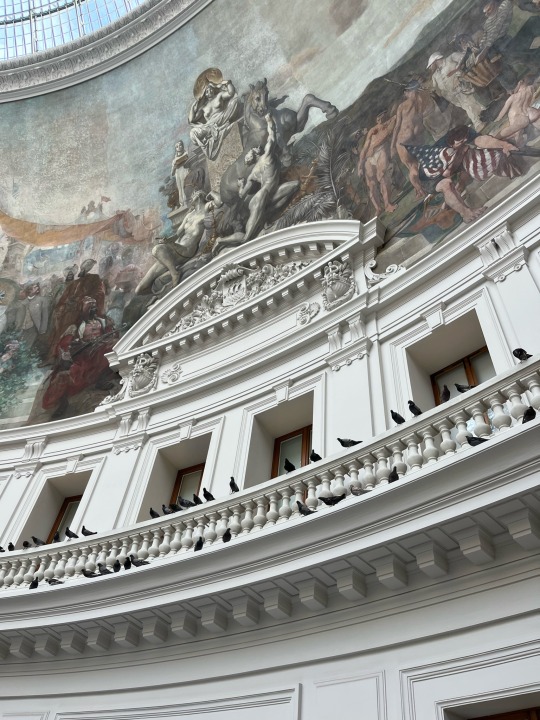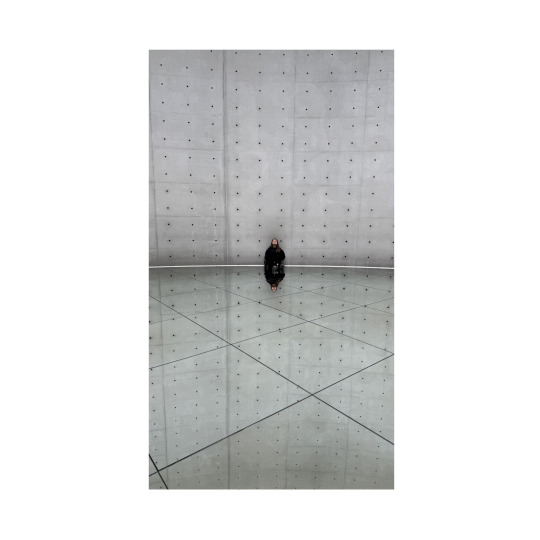#Bourse de Commerce
Explore tagged Tumblr posts
Text



Paris, Bourse de Commerce Arte Povera
0 notes
Text






Arte Povera at Bourse de Commerce, jan 2025, Paris
2 notes
·
View notes
Text

Parigi, gennaio 2025 (prima mostra dell’anno). Aveva ragione Corrado che ha visitato la mostra un paio di giorni fa: per essere Arte Povera c’è un po’ troppa sovrabbondanza. Paolini, Fabbri, Pennone, Merz, Kounellis, Pistoletto, Manzoni…Tutto e tutto insieme non sembrano funzionare un gran che. La foga espositiva di Pinault è dei suoi curatori, qualche volta lo porta a commettere peccati (veniali).
1 note
·
View note
Text

ARTE POVERA - A la Bourse de Commerce... Faut-Il en dire davantage sur cet oxymore plein d'humour, voire de cynisme ??? Je ne sais pas....

Je serai donc très formelle :
À partir du 9 octobre 2024, Pinault Collection présente à la Bourse de Commerce, une exposition d’envergure dédiée à l’Arte Povera. Entre héritage et influence, l’exposition traverse plus de 250 œuvres historiques, contemporaines, et issues de ce courant artistique italien majeur des années 1960.

L'exposition « Arte Povera » s’attache à éclairer aussi bien la naissance italienne que le rayonnement international de ce courant, à travers les œuvres des treize principaux protagonistes de l’Arte Povera : Giovanni Anselmo, Alighiero Boetti, Pier Paolo Calzolari, Luciano Fabro, Jannis Kounellis, Mario Merz, Marisa Merz, Giulio Paolini, Pino Pascali, Giuseppe Penone, Michelangelo Pistoletto, Emilio Prini et Gilberto Zorio.

Dans l’architecture singulière de la Bourse de Commerce, transformée par l’architecte japonais Tadao Ando, l’exposition est envisagée comme un paysage que l’on arpente et devient le terrain où s’enracine la poétique infinie de l’Arte Povera.

Imaginée par la commissaire Carolyn Christov-Bakargiev, spécialiste internationalement reconnue de ce courant artistique, l’exposition rassemble une cinquantaine d’œuvres historiques et emblématiques de la Collection Pinault mises en correspondance avec celles d’autres collections prestigieuses, publiques et privées.
#EXPO#ARTE POVERA#Bourse de Commerce#installations#arbres#écologie#sculptures#plasticiens#Paris#Italie
0 notes
Text
Bourse de Commerce
1 note
·
View note
Text

Depuis quelques semaines, la Bourse de Commerce est en effervescence pour accueillir plus de 250 œuvres des treize principaux protagonistes de l'Arte Povera, déployées progressivement dans les espaces du musée avant l'ouverture complète de l'exposition le 9 octobre.
7 notes
·
View notes
Text

Lina Lapelyté, The Speech, septembre 2024
1 note
·
View note
Text

0 notes
Text

Paris, bourse de commerce (Pinault collection), 15 juin 2024.
#bizarre au havre#photography#black and white photography#paris#bourse de commerce#pinault collection#contemporary art#museum#exhibition#photographie#noir et blanc#art contemporain#musée#exposition#artist#artiste
10 notes
·
View notes
Text





















Bourse de Commerce, Pinault Collection, Paris, France — Photo by Thibault Jorge
#vsco#art#architecture#bourse de commerce#tadao ando#bertrand lavier#marcel duchamp#jeff koons#damien hirst#museum#exhibition#gallery
18 notes
·
View notes
Text
LE MONDE COMME IL VA (parte I)
Come si sa la Collection Pinault, una delle più ricche ed importanti collezioni di arte contemporanea al mondo, ha da tempo trovato la sua sede definitiva nel meraviglioso scrigno della Bourse de Commerce a Parigi, ripensata da Tadao Ando e restituita al suo splendore. La collezione, tuttavia, ha la particolarità di essere una collezione mutante, ovvero, i pezzi esposti non sono mai gli stessi, mutano appunto e con loro, muta il titolo dell’esposizione. A questo proposito occorre dire che, qualche volta, il titolo sembra essere un po’ posticcio se non proprio pretestuoso, ma in compenso le opere sono sempre di altissimo livello e valore. È il caso della mostra che si è appena conclusa dal titolo “Le monde comme il va”. Dopo essere stati accolti all’ingresso dal gaudente (o arrabbiatissimo) Picasso di Maurizio Cattelan, fatti pochi passi, non c’è che dal restare esterrefatti dalla semplice ma spettacolarissima installazione dell’artista Kimsooja ovvero "To Breathe – Constellation", gigantesco specchio pavimentale che riflette la cupola della Bourse, con il suo decor architettonico e con la decorazione pittorica ottocentesca, con il vecchio e il nuovo mondo in una visione vagamente colonialista. Lo specchio, mondo alla rovescia per eccellenza, mai è sembrato più spettacolare di quanto appaia qui, sotto i millequattrocento metri quadrati della gigantesca decorazione pittorica raffigurante i quattro continenti. Nelle vetrine del corridoio perimetrale , invece, una raffinatissima raccolta di opere materiche di Kimsooja, piccole opere di rara e poco appariscente bellezza, tipicamente orientale: vasi, forme geometriche, tessuti, pietre che vanno a costituire un mondo parallelo, quelli che l’artista chiama “Deductive Object”. Nel piano inferiore fanno mostra di sé i meravigliosi “Bottari”, ovvero oggetti della tradizione coreana, fagotti di stoffa che incarnano il modo tradizionale di avvolgere gli effetti personali prima di una partenza. Qui i “Bottaris” diventano *sculture morbide e multicolori, quasi una costellazione misteriosa che si distende nello spazio sotterraneo della Bourse. Kimsooja è anche un sapiente filmaker e alla Bourse sono presenti alcune sue opere di grande interesse. Nella Galerie 2 ( sempre al piano terra) a sorprendere il visitatore è senza dubbio l’installazione mobile di Sun Yuan e Peng Yu: personaggi di ex-potentati mondiali (ex regnanti, prelati ortodossi e uomini politici non meglio identificati), diventano modelli scultorei iper realisticamente rappresentati a tutto tondo, che si aggirano su sedie a rotelle tra le opere di un’altra grande figura dell’arte contemporanea ovvero Goshka Makuga, che a sua volta fu creatrice di grandi automi (memorabile la sua mostra alla Fondazione Prada di Milano di qualche anno fa). Qui la Makuga espone suoi arazzi fotografici, in cui sono, anche qui, rappresentati potenti ed ex potenti in ambientazioni decontestualizzate e stranianti. (continua)




0 notes
Text

"To Breathe - Constellation" - Kimsooja - Bourse De Commerce, Paris, France
1 note
·
View note
Text

The sky looks fake.
3 notes
·
View notes
Text


Inside the mind of Tadao Ando
5 notes
·
View notes

